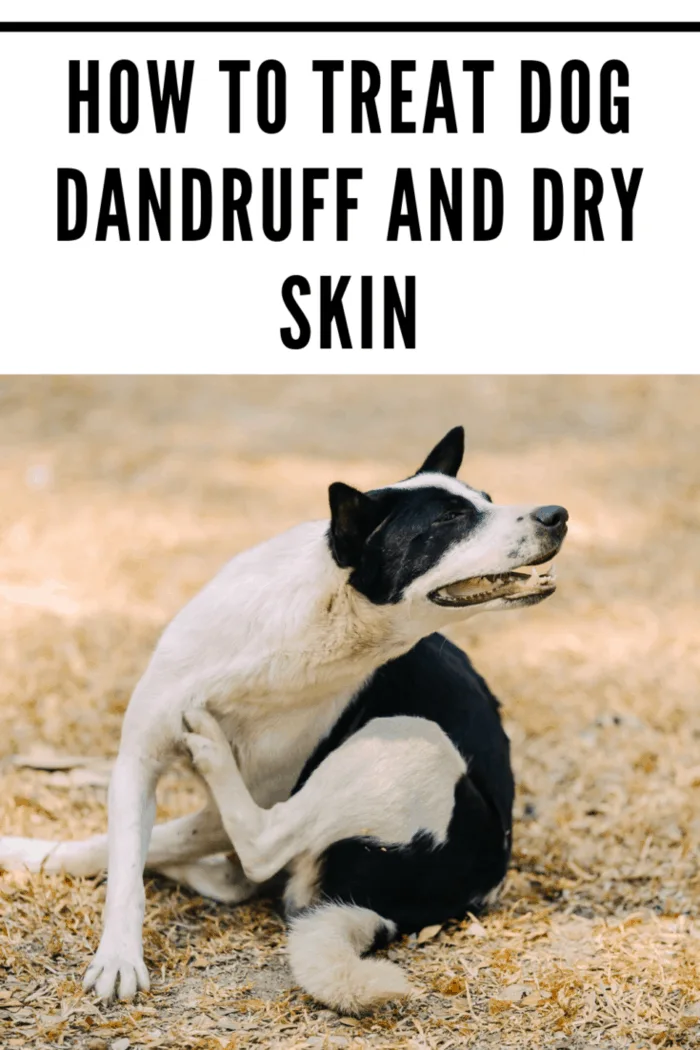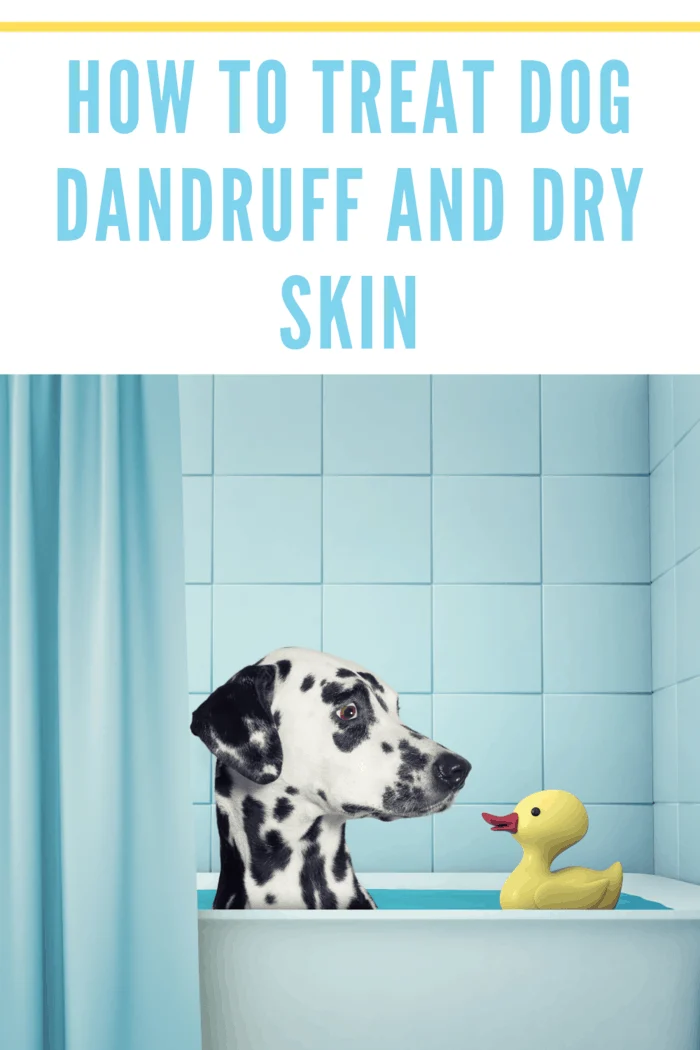Dog dandruff is a very common problem and one that may be related to a wide variety of health issues. Causes of dandruff in dogs can be related to genetic disorders, allergies or skin diseases. If you notice that your dog has a lot of dandruff in the coat, or if it suddenly develops an unpleasant odor, a visit to the vet is recommended. Treating dandruff and dry skin is relatively easy, especially if the causes are determined early. Changes in behavior, mood or eating patterns can also signal a skin problem.

How to Treat Dog Dandruff and Dry Skin
Dandruff
It can be categorized as a primary or secondary cause.
As a primary cause, dandruff or seborrhea is inherited and very rare but easily treated.
An itch relief shampoo for dogs may rapidly help ease symptoms.
As a secondary cause, dandruff can be the result of:
- Bacterial infections
- Endocrine disorders
- Dietary abnormalities and obesity
- Environmental factors such as humidity
- Allergies
The only one who can properly determine the cause of dog dandruff is a veterinary, but you may want to pay attention to common symptoms such as:
A lot of flakes on your dog’s coat. Try to determine if they are located in a specific spot or are generalized.
Excessive scratching: In the presence of a bacterial infection or a parasite such as a tick or flea, your dog will constantly scratch and show signs of discomfort.
A particular odor or presence of “red spots” is a symptom that should be immediately treated.

Treating Dry Skin
If your dog suffers from a dry skin condition, moisturizing shampoo and regular baths are recommended.
Regular grooming is also a way to avoid most parasite-related skin issues (Pet Web MD).
Using a humidifier can also help soothe dry skin, especially in winter or particularly dry areas.
Allergy-Related Dandruff
Changing your dog’s food brand can help solve the dandruff problem. (PDSA)
Your doctor may prescribe topical or oral medication if you have seasonal or environmental allergies.
Often, a dog that suffers from allergies may need a combination of treatments.
Infection
Infected skin should be treated immediately, as an infection can rapidly spread.
Treatment for infection usually involves antibiotics. Infection may trigger immune responses requiring medication to suppress the immune system and stop inflammation.
Urgent care is necessary if you suspect your dog is dealing with an infection.
Endocrine Disorder Dandruff
Dogs suffering from diseases such as hypothyroidism can experience dandruff.
A hormone replacement treatment in the form of oral medication is the best way to help.
Nutritional Supplements
If you have changed your dog’s diet and other causes of dandruff have been ruled out, nutritional supplements may help.
Usually, a lack of omega-3 fatty acids is the most likely cause of dandruff.
Talking to your vet before giving your pet any nutritional supplements is important.
A Good Nutrition Plan
Obesity can be a cause of dog dandruff.
Keeping your dog lean is a very good way to maintain overall health.
You can establish a good nutrition plan with your vet from a proper diet to regular exercise.
You may want to ask if our homemade dog food recipe is right for your dog.
The vet will also establish if your dog lacks certain nutrients and recommend a specific type of food in case of allergies.
Caring for a dog is the best way to ensure that an illness does not develop. (Animals How Stuff Works)
Pay attention to any significant changes that may signal discomfort or pain, and establishing periodical visits to the veterinary may prevent important health hazards.
If skin issues are related to other important conditions, immediate action is important.
Understanding the particular needs of different dog breeds can also help owners establish healthy eating and exercise patterns and an ideal grooming schedule.
While some dogs can benefit from keeping their fur short, it can cause dry skin for others, so knowing the difference can help avoid problems.
Don’t hesitate to visit your vet if you have any concerns about your dog’s habits or general well-being.
